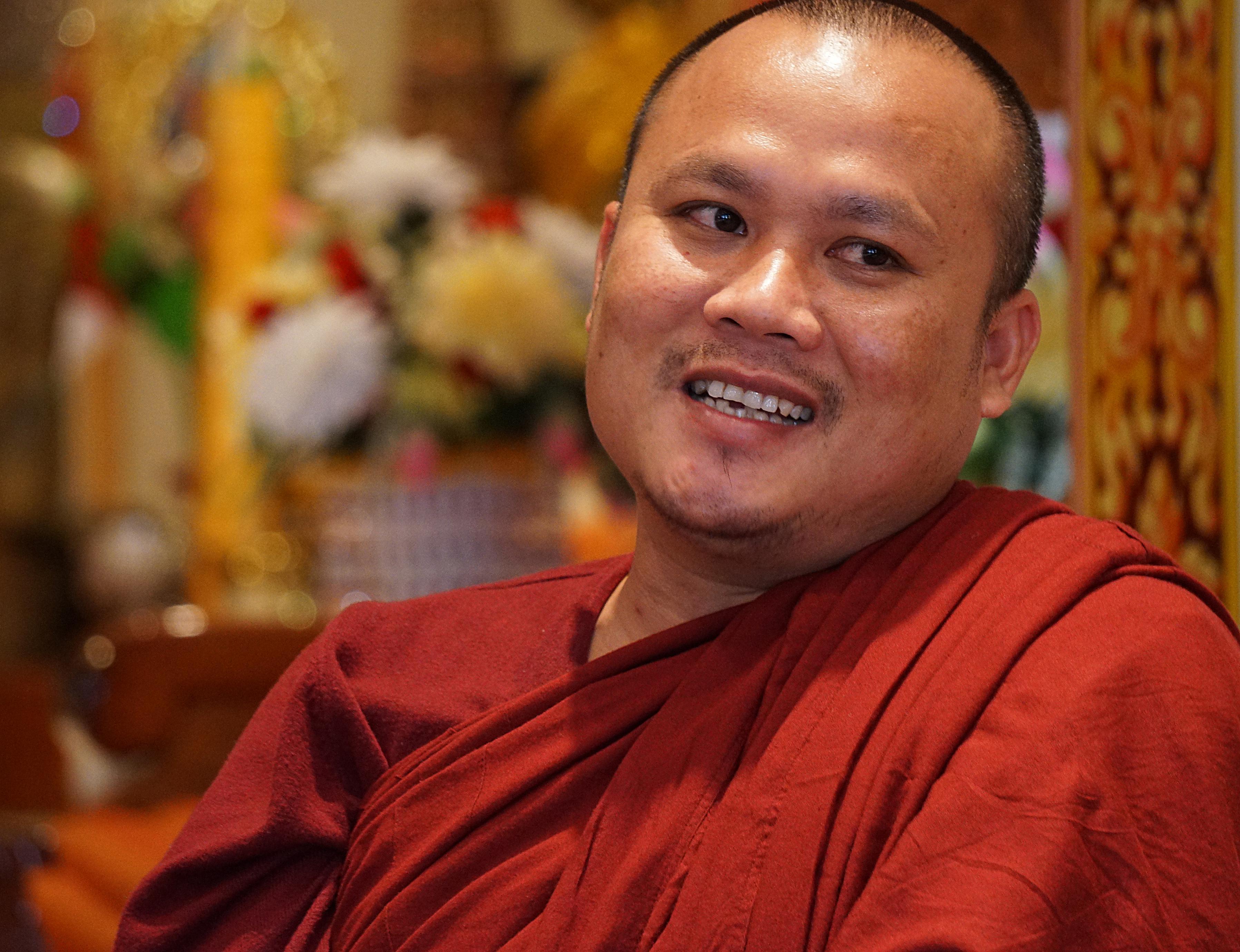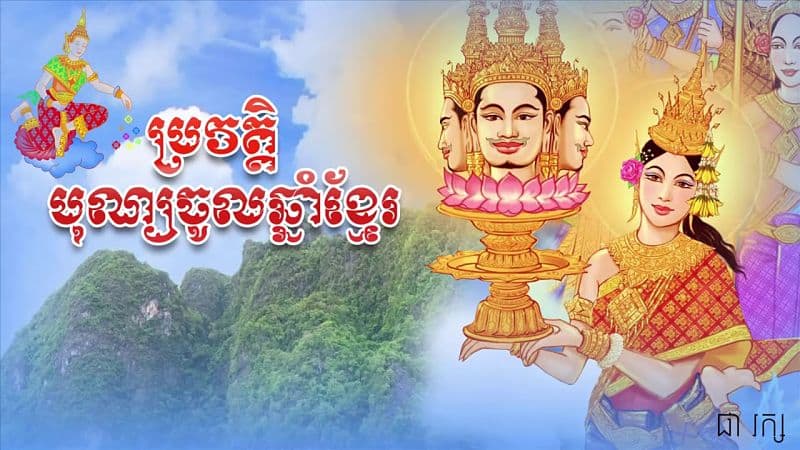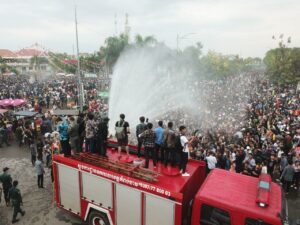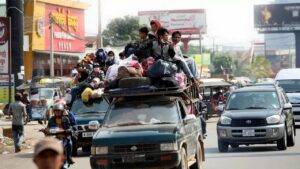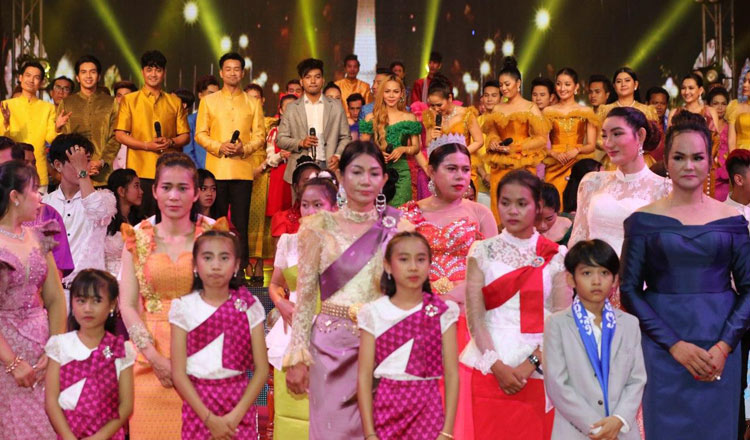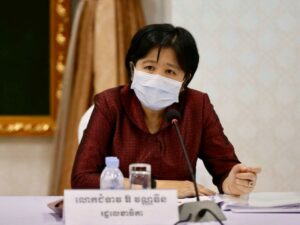Virus upends a usually joyous season for Cambodian-Americans in Rhodes Island
In years past, Wat Thormikaram of Rhode Island, in the West End of Providence, has been a hotbed of activity in the time leading up to the Cambodian New Year.
That is what Panha Sum, the temple’s president, said he would miss most this year.
“We are feeling very sad,” Sum said through an interpreter. “It’s our annual tradition to have everyone gather so they can bring a food offering to their ancestors.”
Yet Samnang Becker, the wat’s secretary, said that COVID-19 has taken away more than just a community celebration.
“We make about $10,000 for the New Year,” he said in Khmer. “That money would normally get us through until the fall.”
Thormikaram, the oldest ethnically Cambodian temple in the United States, currently has around $24,000 in reserve. Taking into account a $10,000 property insurance payment due in July, Becker said the wat could expect to make it financially through August should social distancing continue.
“It’s kind of worrisome,” Sum said. “The temple has four buildings and we need to pay bills for those. Yet now there is nothing coming from the people to support the temple.”
The dozen or so monks at Thormikaram – as are all members of the sangha (Buddhist clergy) – are prohibited from handling money and rely on donations from the community. The funds are then handled by lay volunteers. Most donations come from two holidays.
The first is the New Year, set to start on Tuesday according to Cambodia’s traditional Chhankitek calendar. The second is Pchum Ben, a fall celebration to honor the deceased.
According to Becker, the donations from New Year celebrations would normally hold the temple over until Pchum Ben, when he estimates the temple collects about $15,000.
“Everything depends on the community members,” Sum said. “But they are facing the same issues as us, so we don’t want to press it too much.”
Even before the virus, Cambodians were struggling economically. According to a 2014 study by The Center for Southeast Asians, of the 5,961 Cambodians in the state, 25.1% live below the poverty level, compared with 12.2% of all Rhode Islanders.
The Lao — the third-largest Southeast Asian population in Rhode Island, after Cambodians and Filipinos — celebrate their New Year at roughly the same time. Temples in that community are also worried about their financial futures.
“New Year is a main source of income to sustain our temples,” said Khamfeung Thounsavath, secretary of Wat Lao Buddhovath of Rhode Island, in Smithfield. ”[In terms of] both foods for monks and monetary incomes to maintain utilities.”
Thounsavath also said the celebration provides a time of unity and cultural pride that will be missed, though their faith teaches them to accept the circumstances.
“Any major holiday means big celebration,” Thounsavath said. “People want to celebrate according to their culture and tradition. As Buddhist followers, we were taught at a young age to be mindful and accept current conditions.
“Especially, a natural occurrence which we cannot control such as COVID-19,” Thounsavath added. “Communities can see all over the news and understand the importance to obey local, state and federal warnings.”
Becker, who also serves as communications secretary for the Cambodian Society of Rhode Island, said New Year is an opportunity to showcase traditions that are not as much a part of daily life in the United States.
Across the street from the wat is the Cambodian Society’s headquarters. Flipping on the lights, Becker directed his guest’s eyes to a dark corner where traditional Cambodian dress used by youths in a dance group hung in silence.
“Those are all the uniforms that aren’t being used,” he said. “The dance group stopped rehearsal a couple of weeks ago.”
The society’s annual celebration at Rhodes on the Pawtuxet in Cranston is the largest locally. When it was canceled last week, the disappointment was palpable — even for those not of Southeast Asian descent.
“It affects the community positively to show others how we celebrate our New Year,” Becker said. “My youngest daughter’s boyfriend bought a new suit. He’s not even Cambodian but he’s disappointed now.”
Sum said that the sense of community and connection to a wider identity is what he will really miss about the holiday.
“It doesn’t matter where you live when April comes everybody in the world that celebrates Cambodian New Year will dress up nicely and bring food and flowers and gather,” he said. “When that time comes everybody dresses in a traditional way and it makes the missing of the old country disappear during that time.”
Source: https://www.providencejournal.com/news/20200410/virus-upends-usually-joyous-season-for-cambodian-americans-in-ri

